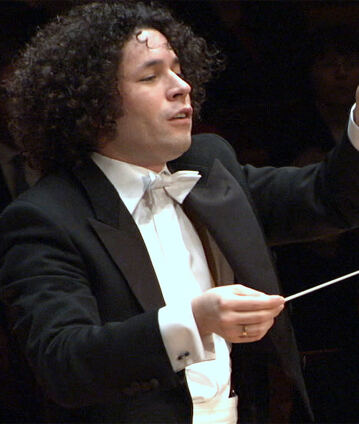Interview
Gustavo Dudamel en conversation avec Edicson Ruiz Une « Soirée russe » avec Gustavo Dudamel et Viktoria Mullova

« Une tête brûlée, mais dotée d’une profonde compréhension musicale et d’un impeccable métier de chef d’orchestre », a-t-on pu lire dans la presse lorsque Gustavo Dudamel a dirigé pour la première fois les Berliner Philharmoniker à la Philharmonie. Le programme russe se distinguait par sa grande variété, réunissant la Symphonie n° 5 de Prokofiev, L’Île des morts de Rachmaninov et le Concerto pour violon de Stravinsky avec Viktoria Mullova en soliste.
Berliner Philharmoniker
Gustavo Dudamel
Viktoria Mullova
© 2009 Berlin Phil Media GmbH
Interviews liées au concert
Artistes
Nos suggestions
- Claudio Abbado et Viktoria Mullova au Suntory Hall, Tokyo
- Gustavo Dudamel dirige la Deuxième Symphonie de Mahler
- Gustavo Dudamel dirige la Symphonie « du Nouveau Monde » de Dvořák
- Gustavo Dudamel dirige Beethoven, Schubert et Stravinsky
- Gustavo Dudamel dirige Wagner et Schumann à la Waldbühne
- À Taïwan avec Gustavo Dudamel